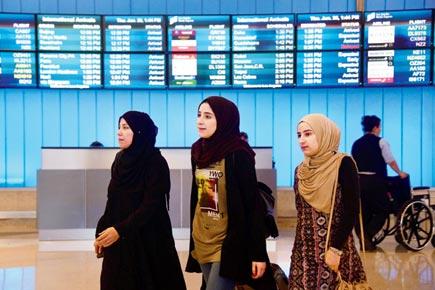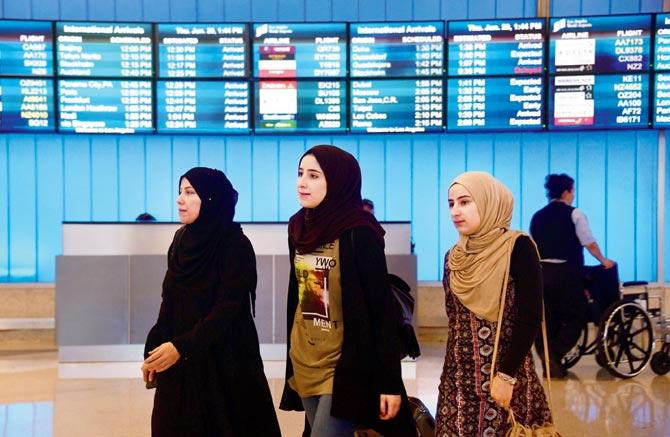Lawyers and rights activists took up positions at major US airports as a weakened version of President Donald Trump’s travel ban went into effect

 Travellers from the Middle East arrive at the International Arrivals section at Los Angeles International Airport. Pic/AFP
Travellers from the Middle East arrive at the International Arrivals section at Los Angeles International Airport. Pic/AFP
ADVERTISEMENT
Lawyers and rights activists took up positions at major US airports as a weakened version of President Donald Trump's travel ban went into effect.
Attorneys working pro-bono set up makeshift, just-in-case legal aid stations at airports serving New York, Los Angeles, San Francisco, Chicago, Washington and other cities. But the first hours of the new version of the ban, as allowed by the Supreme Court, appeared to unfold calmly.
Under a Supreme Court ruling this week that allowed part of the ban to take effect, the 90-day ban on visitors from Iran, Libya, Somalia, Sudan, Syria and Yemen, and a 120- day ban on refugees, will allow exceptions for people with "close family relationships" in the United States. Activists said the government has defined that too narrowly, excluding relationships with grandparents and grandchildren, aunts and uncles and others.
People with formal relationships with a US entity – who have been offered a job or been accepted to study or lecture at a university – will also qualify for visas during the ban.
 Subscribe today by clicking the link and stay updated with the latest news!" Click here!
Subscribe today by clicking the link and stay updated with the latest news!" Click here!







